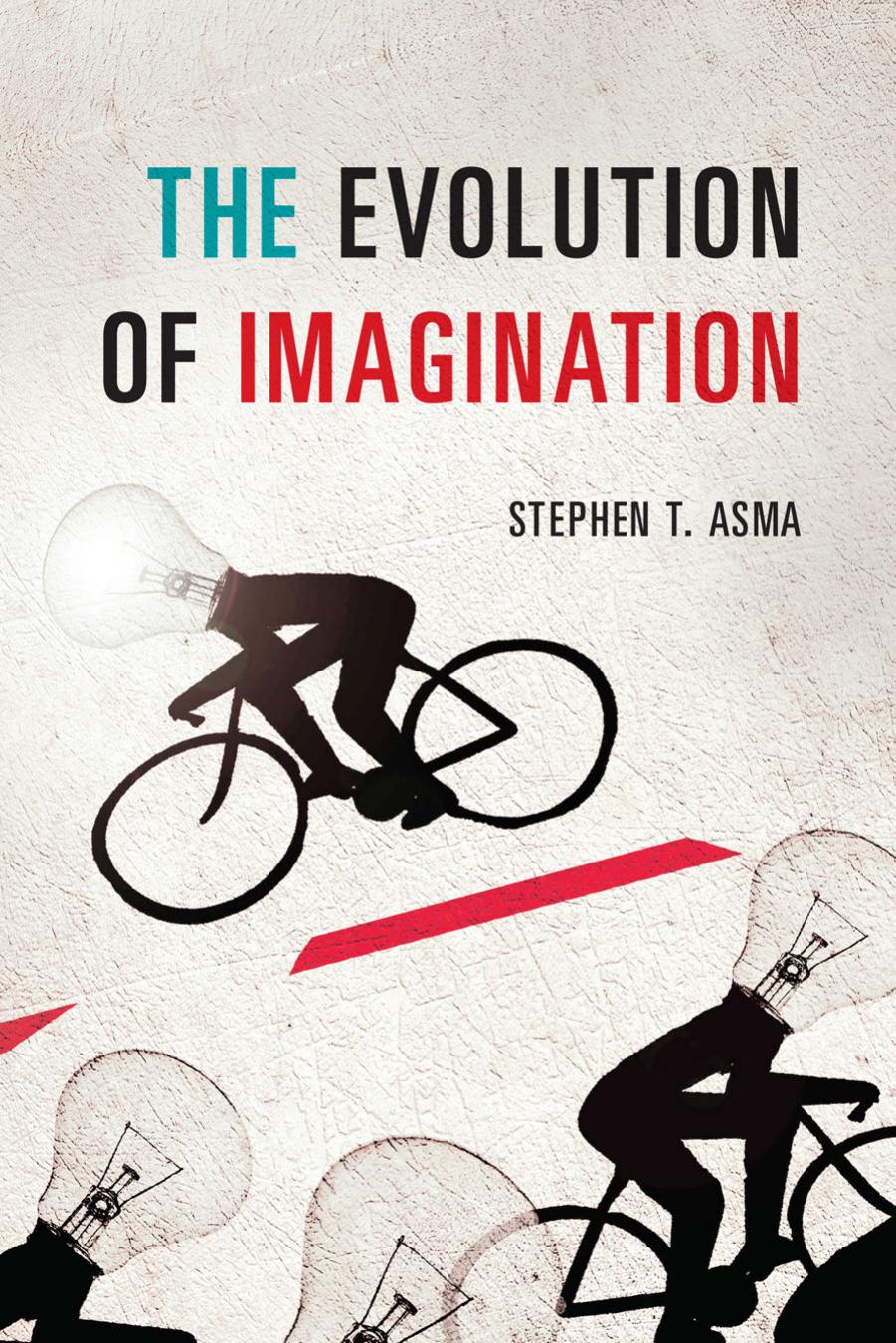The Evolution of Imagination by Stephen T. Asma

Author:Stephen T. Asma [Asma, Stephen T.]
Language: eng
Format: epub, pdf
ISBN: 9780226225166
Publisher: University of Chicago Press
Published: 2017-05-04T06:00:00+00:00
We’ve tuned the theory as best we can, at this juncture. Some of our instruments are more obscure than others; some intonation is dodgy, some strings missing, and valves broken. But we improvisers can’t be too fussy about perfect clarity. We have to make do. So, I’ll try to condense the tune so far into a concentrated summary.
The imagination is an embodied voluntary simulation system that draws on perceptual, affective, and memory elements, for the purpose of creating works that adaptively investigate external and internal resources. Beyond the extrinsic useful values of this system (adaptive investigation), it also possesses significant intrinsic value (e.g., in the joy of play and states of wonder). The mechanisms by which this system does its synthetic work include association, image prototyping, entrainment, cross-domain projection, recursion, embedding of subsections, and more. Some of these mechanisms are involuntary in their origin, but then available for later intentional manipulation. These mechanisms appear to be available across modes of cognition and communication, and not exclusive modules of imagination. Similarly, as voluntary control increases, imaginative powers become available to many downstream modes of cognition and culture (e.g., technology innovation, storytelling, music, etc.).
Improvisation is a hot cognition exercise of the imagination; simultaneously performative and compositional. It is marked by high toleration and exploration of the flexibility intrinsic to the system. Such toleration and exploration are motivated by (a) the affective exhilaration of high-stakes jeopardy creation, (b) the epistemic potentials of lateral thinking (brainstorming and embodied equivalents).
Additionally, error toleration is a necessity when hot cognition reduces executive control and time constraints produce reduced or partial intentionality (i.e., unintentional, unconscious, and unguided elements abound under the improvisational umbrella). Shit happens. Moreover, these imperfections are not just tolerated but often celebrated as aesthetic (and sometimes epistemic) virtues.
Download
The Evolution of Imagination by Stephen T. Asma.pdf
This site does not store any files on its server. We only index and link to content provided by other sites. Please contact the content providers to delete copyright contents if any and email us, we'll remove relevant links or contents immediately.
The Art of Thinking Clearly by Rolf Dobelli(10455)
Mindhunter: Inside the FBI's Elite Serial Crime Unit by John E. Douglas & Mark Olshaker(9324)
Change Your Questions, Change Your Life by Marilee Adams(7761)
Nudge - Improving Decisions about Health, Wealth, and Happiness by Thaler Sunstein(7694)
Mastermind: How to Think Like Sherlock Holmes by Maria Konnikova(7324)
The Power of Now: A Guide to Spiritual Enlightenment by Eckhart Tolle(5760)
Men In Love by Nancy Friday(5234)
Altered Sensations by David Pantalony(5094)
Factfulness: Ten Reasons We're Wrong About the World – and Why Things Are Better Than You Think by Hans Rosling(4737)
The Confidence Code by Katty Kay(4251)
Thinking in Bets by Annie Duke(4218)
Man and His Symbols by Carl Gustav Jung(4131)
The Worm at the Core by Sheldon Solomon(3486)
Why Buddhism is True by Robert Wright(3447)
Liar's Poker by Michael Lewis(3442)
Three Women by Lisa Taddeo(3425)
The Inner Life of Animals by Peter Wohlleben(3311)
Descartes' Error by Antonio Damasio(3271)
How Music Works by David Byrne(3261)
